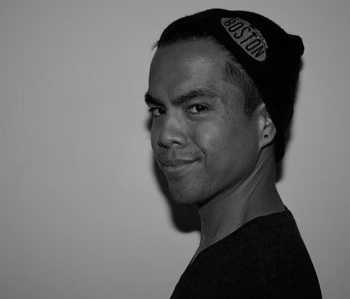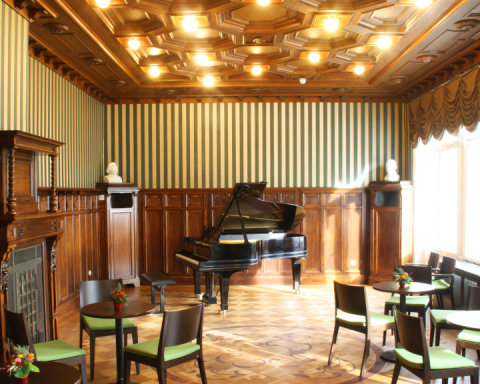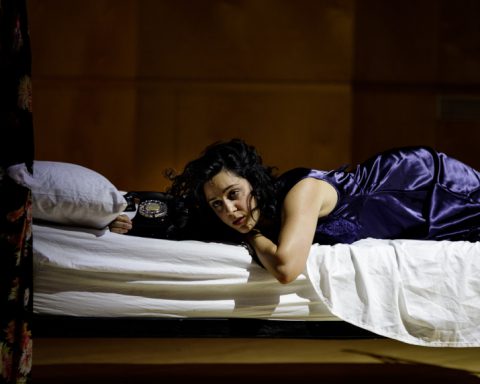The other weekend, I was able to check out Richard Wagner’s Tannhäuser at Oper Leipzig. If you are reading this and haven’t seen it yet, don’t know what it is, or are even faintly curious as to how it is, do yourself a favor and stop reading this review and buy a ticket now for the 27 May performance.
It is the last of this season, and it is worth it. You can thank me later.
Simply put, it is just one great opera to watch as an audience member.
It helps that, unlike a fair number of opera plots and those of Wagner as well, the plot is relatively straightforward.
The singing itself was my favorite part in the performance I went to. There are some things I think could have been done differently, though – both musically and with regards to the production.
For those who aren’t familiar with this particular opera, here’s a quick brush-up: Tannhäuser is one of the earlier Wagner operas, and in the humble opinion of this writer, it’s a masterpiece. Chock full of tunes, big arias, even bigger chorus numbers, it overflows with incredible orchestral writing.
The whole thing flows by at a relatively medium pace. The main musical motif that is introduced in the overture, and which consistently reappears throughout, never tires the ear.
It calls for big singers who can bring big drama and big volume, and includes one of the most demanding tenor roles in the repertoire.
To boot, the story is easy to follow.
In it, Tannhäuser, who has been enjoying the carnal fruits of Venus’s realm some time, decides to finally leave and return to the real world. He meets his friends again and is reminded by his best friend, Wolfram, that Elisabeth (Tannhäuser’s love) is still around.
The Landgrave of Wartburg, where the opera is set, decides to have a singing contest (how convenient in an opera!), and whoever wins, gets his daughter – Elisabeth – as the prize. Tannhäuser and Wolfram (who is supposed to be his best friend) battle it out. During the battle, Tannhäuser’s song becomes more and more carnal and invokes the pleasure of love. The townspeople, shocked, decide that he should be banished, and the Landgrave that Tannhäuser should go to Rome and see the Pope. (Dirty, dirty Tannhäuser!)
As you may have guessed or known, it doesn’t go well with the Pope, and tragedy ensues for the lovers. Tannhäuser wants to throw in the towel and go back to Venus, but Wolfram reminds him of Elisabeth’s true love for him. Coincidentally, her funeral procession passes at that exact moment.
It’s a classic opera plot, where everyone dies at the end but it’s a happy ending nonetheless. Pilgrims come in and hint that Tannhäuser has finally gotten the Pope’s forgiveness – posthumously, of course.
All in all, it is one great time at the opera. Haven’t bought that ticket yet? Just do it.

To be a success, you need a great Tannhäuser.
Thankfully, this production has it. Stefan Vinke, who is singing the title role in Parsifal at the Oper as well, is an absolute master. He performed with the dramatic intensity needed to portray the role, and more importantly, vocally dominated the stage. His high notes were ringing and clear, his middle register was still present and strong, and his diction was so clear I could listen to what he was saying and double check the surtitles afterwards.
This, especially in Wagner, is no easy feat.
As a tenor role, Tannhäuser is like summiting Mount Kilimanjaro (Siegfried, another Wagner tenor role, is undoubtedly Everest). And considering half of it lays in the passaggio – a natural break in the voice between the middle and upper registers that is notoriously difficult to negotiate – it is known as a voice-killer.
This role didn’t come close to intimidating Vinke, who sang the most difficult passages with technical aplomb.
Perhaps most interesting of all about Vinke’s voice is what it is not – it is not necessarily beautiful, and was at times a bit under pitch. However, it has that special “something” that makes one want more, and immediately the listener forgives any misgivings and is ready to hear more.
Another notable shout-out goes to Mathias Hausmann. His Wolfram was excellent, and the famous baritone aria “O Du, Mein Holder Abendstern” in the beginning of the third act was round, beautiful, and musically convincing. Elisabet Strid sang Elisabeth well, although the interpretation left a bit to be desired.
Unfortunately, Kathrin Göring’s Venus was forgettable, which is strange, considering her Kundry in Parsifal is one of the sexiest and most sensual performances of just about anything I’ve ever seen on stage. It just didn’t capture the sheer carnal and lush setting of the music, which is some of my favorite in the entire opera.
But who can blame her? She was clad in a little black dress, playfully slapping a bunch of phallic looking branches (or were they trees?) that were seemingly hanging from the sky, all the while writhing about on a stage that looked like it was covered by a giant black plastic trash bag.
Welcome to Regietheater. Yawn.
Not familiar with Regietheater, dear reader? Then let me give you a short introduction.
An opera house, in this case Oper Leipzig, hires a director to come and direct an opera, and said director can essentially do, as long as it doesn’t put the singers in jeopardy (and this point can also be argued), whatever he or she wants. Many times, more often than not, plots are changed, the general idea of time and place is forgotten, sexuality is emphasized, and everything flies into the stratosphere of “conceptual.”
Our director of Tannhäuser, Calixto Bieito, one of the current “bad boys” of modern Regietheater, employed his own set of overused tricks and clichés in this production: harsh lighting from the side of the stage, gratuitous and unnecessary strangling which doesn’t appear anywhere at all in the plot, and just for kicks, a bucket of blood for Tannhäuser and his friends to smear all over each other in an apparent “blood brothers” sign of friendship.
Thankfully, he didn’t also use any nudity or throw in a totally unnecessary rape scene for the hell of it (a beloved Regietheater gimmick), which almost earns him a one-clap applause. Almost. Honestly, at this point, I’ve seen so much of this nonsense that it doesn’t even faze me any more.
The house was sold-out, and Germans take their Wagner very seriously (which is great and which I love and applaud). They booed this production with such a force that I have never witnessed in any opera house in this country before.
Unfortunately, that wasn’t the biggest problem of the evening.
Musically speaking, the performance was sloppy at best. It was obvious to me, sitting from the balcony with a good view of the conductor of this particular evening, Christopher Gedschold, that he was conducting without as much as a single rehearsal. Tempi were all over the place – he would start one tempo, the orchestra and singers would come in with another, and everyone would agree somewhere in the middle.
The chorus sang the famous second act “Freudig begrüßen wir die edle Halle” nearly an entire bar late, and was in generally poor shape throughout the evening. The entire performance lacked a musical conception and rhythmic pull, which Wagner desperately needs.
Gedschold, who is probably my favorite regular conductor at Oper Leipzig, is not to be faulted. He obviously knew the score, and was doing his best to put his own stamp on the piece, but to no avail.
This is unfortunately a common German theater problem: rehearse for six weeks with the principal conductor of an opera, said conductor gives the premiere, and afterwards other conductors step in, with little to no rehearsal. The result ranges from lackluster to terrible, and this practice is totally unacceptable, especially for a giant Wagner opera and a sold-out crowd. I wish Oper Leipzig, and the rest of the theaters in Germany, would fix this. (By the way, these musical problems are not difficult to solve, as one rehearsal with the new conductor is usually enough to iron out any glaring problems.)
Still, if you haven’t seen this, you should absolutely see it. The music itself is worth it enough; and considering the quality of the singers on stage, it is worth every penny.
And, if you have yet to experience a Wagner opera, this is a good introduction. Buyer beware, you might just get hooked for life on this music – and you can thank me later for that as well.
Christopher Lade is a 31-year-old former professional pianist and conductor. He has a Bachelor’s and Master’s in Music from the University of California, Los Angeles. This is his fifth year in Germany. His background is in classical, but he loves all forms of music, especially jazz, rock, pop, and funk.
Tannhäuser
Oper Leipzig
Sun 27 May, 5 PM
Cover shot: Opera Premiere 17.03.2018 // Tannhäuser (Burkhard Fritz), Kathrin Göring (Venus) © Tom Schulze







